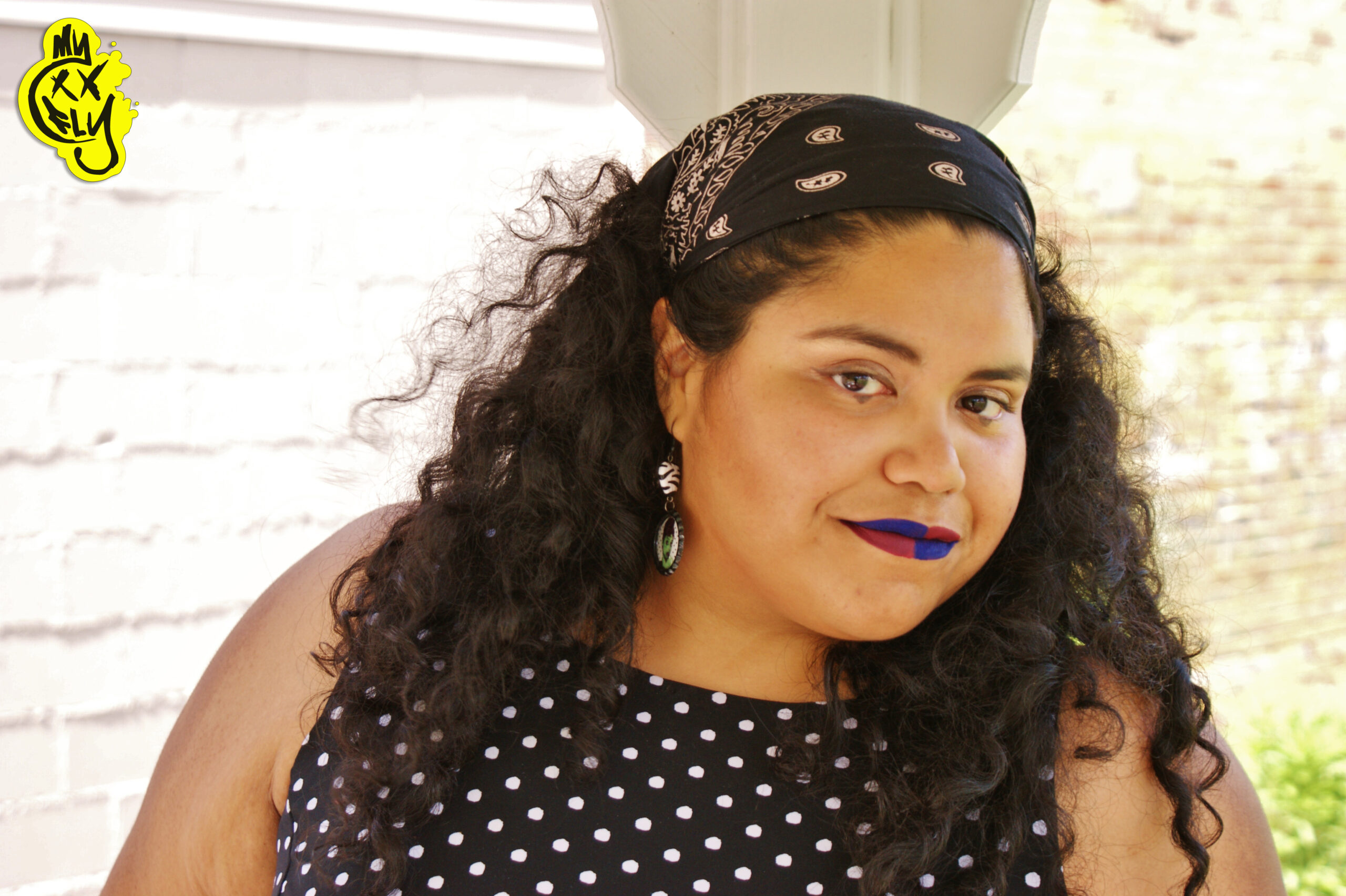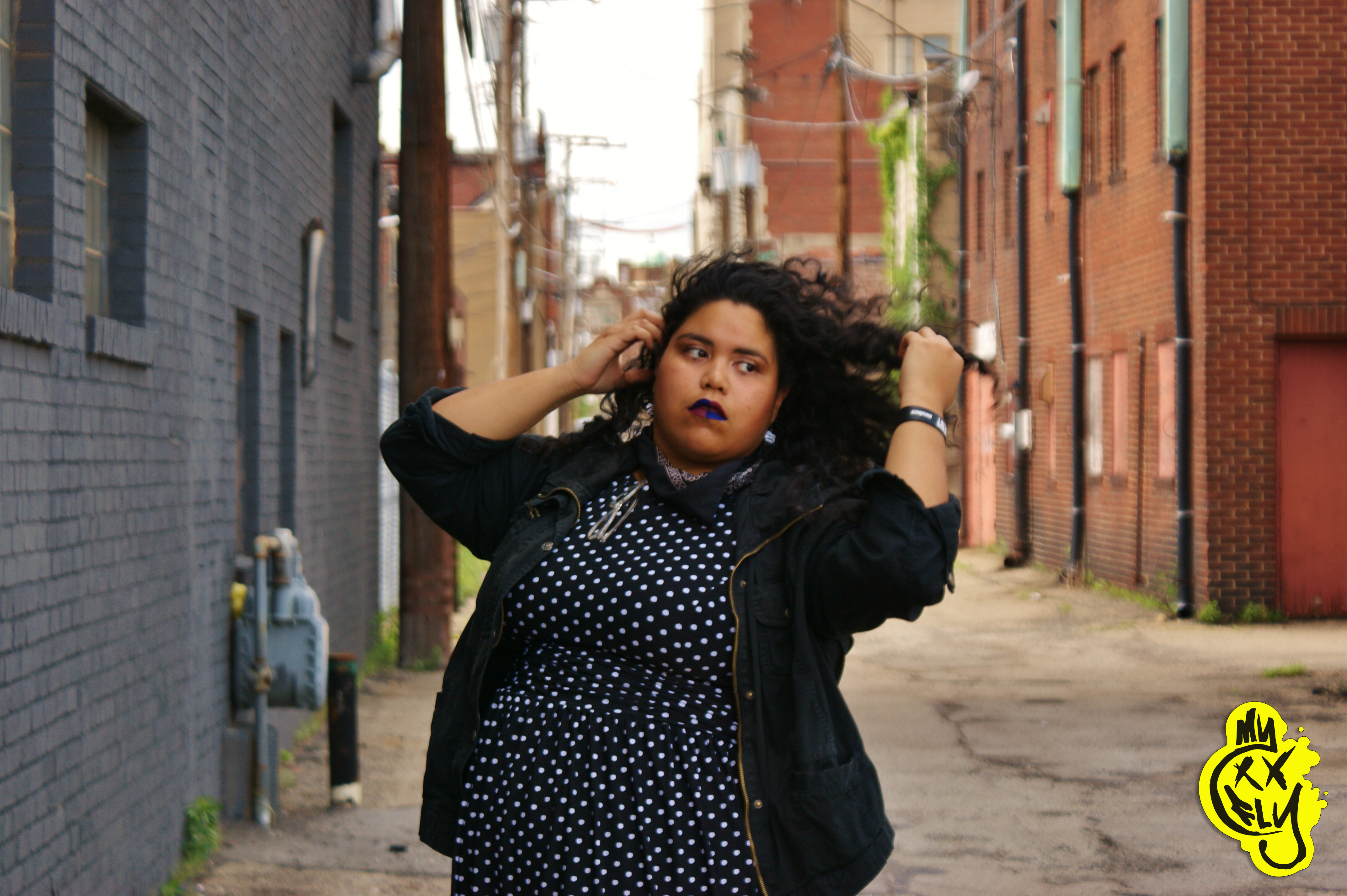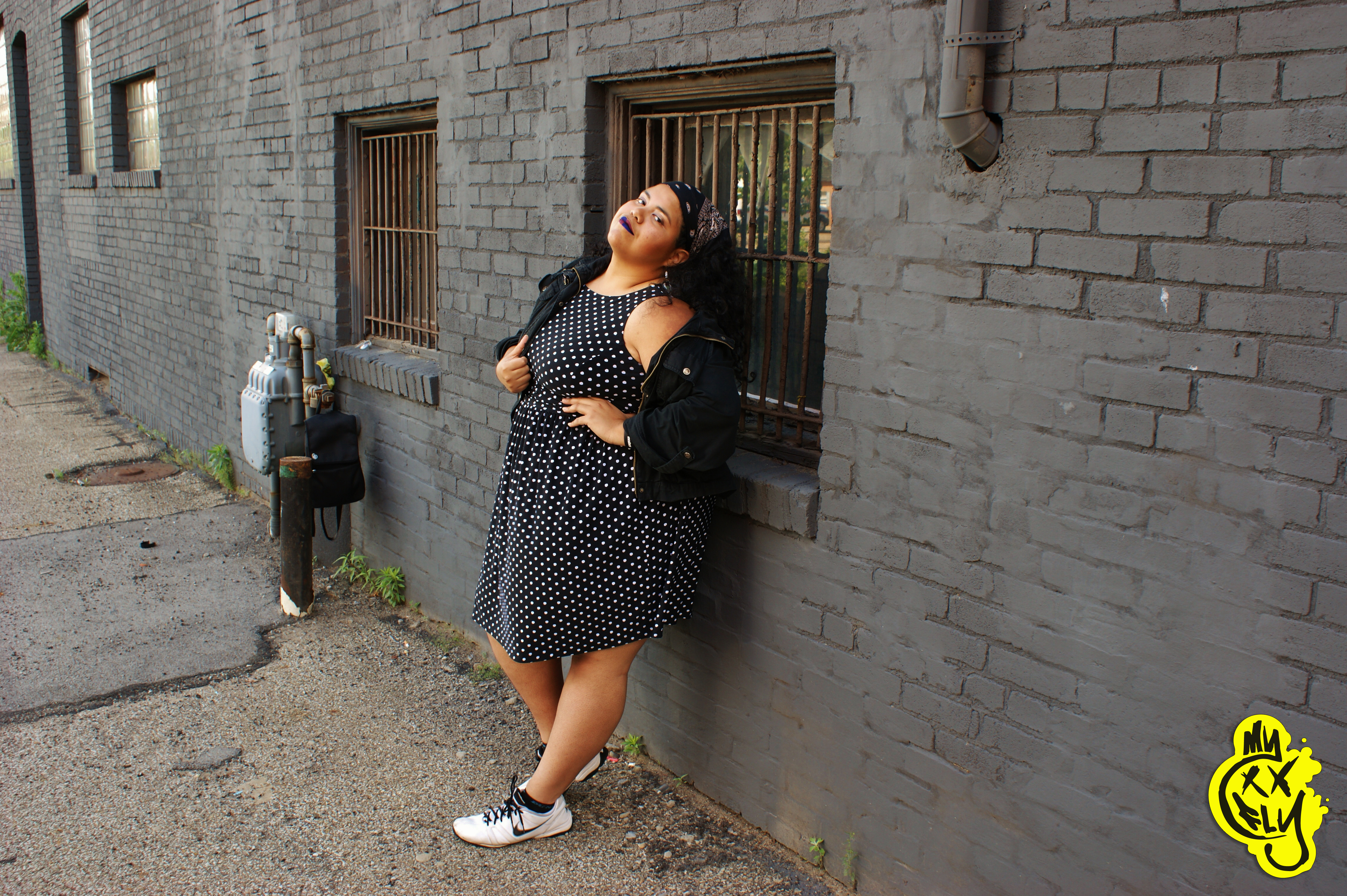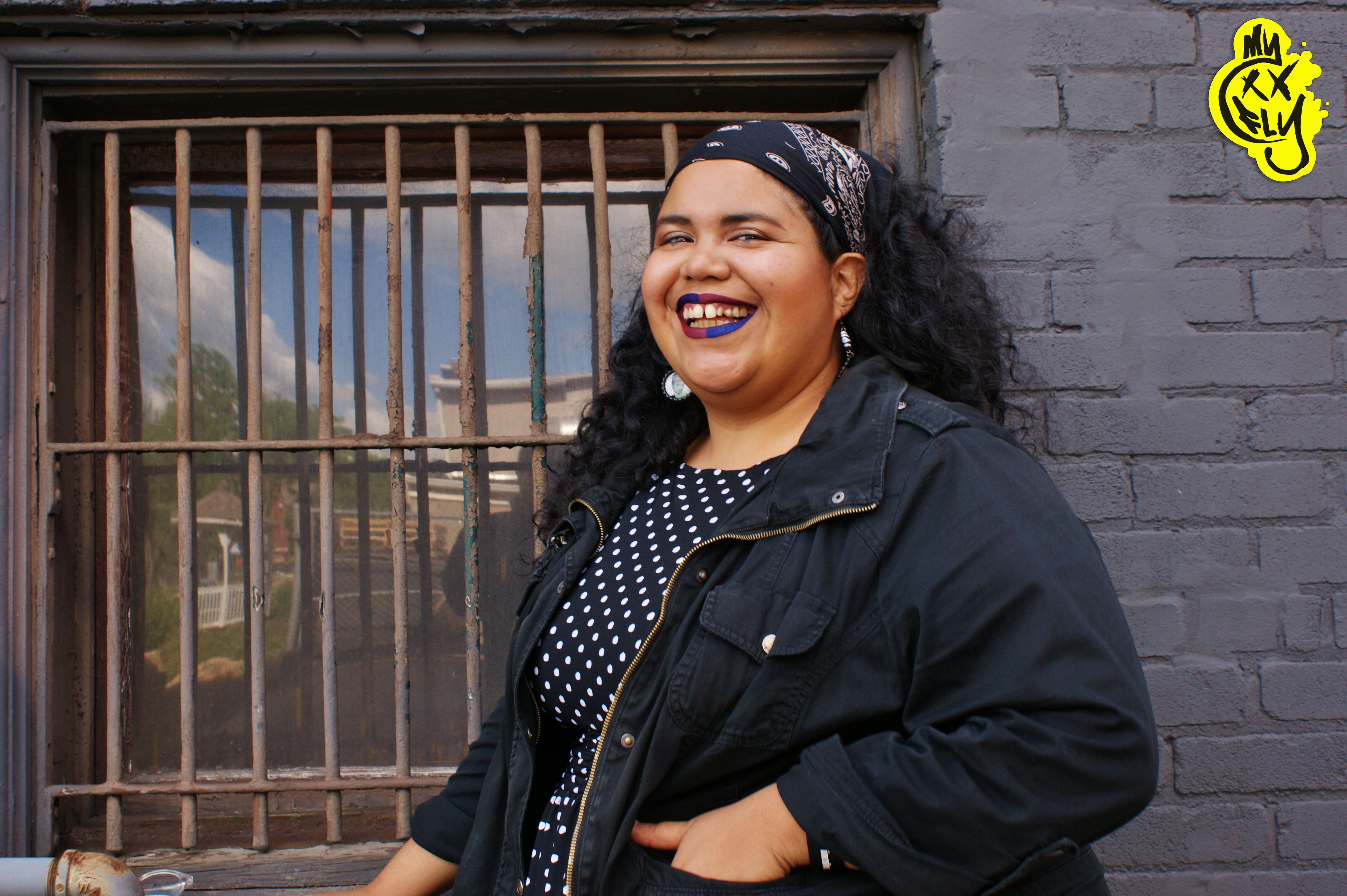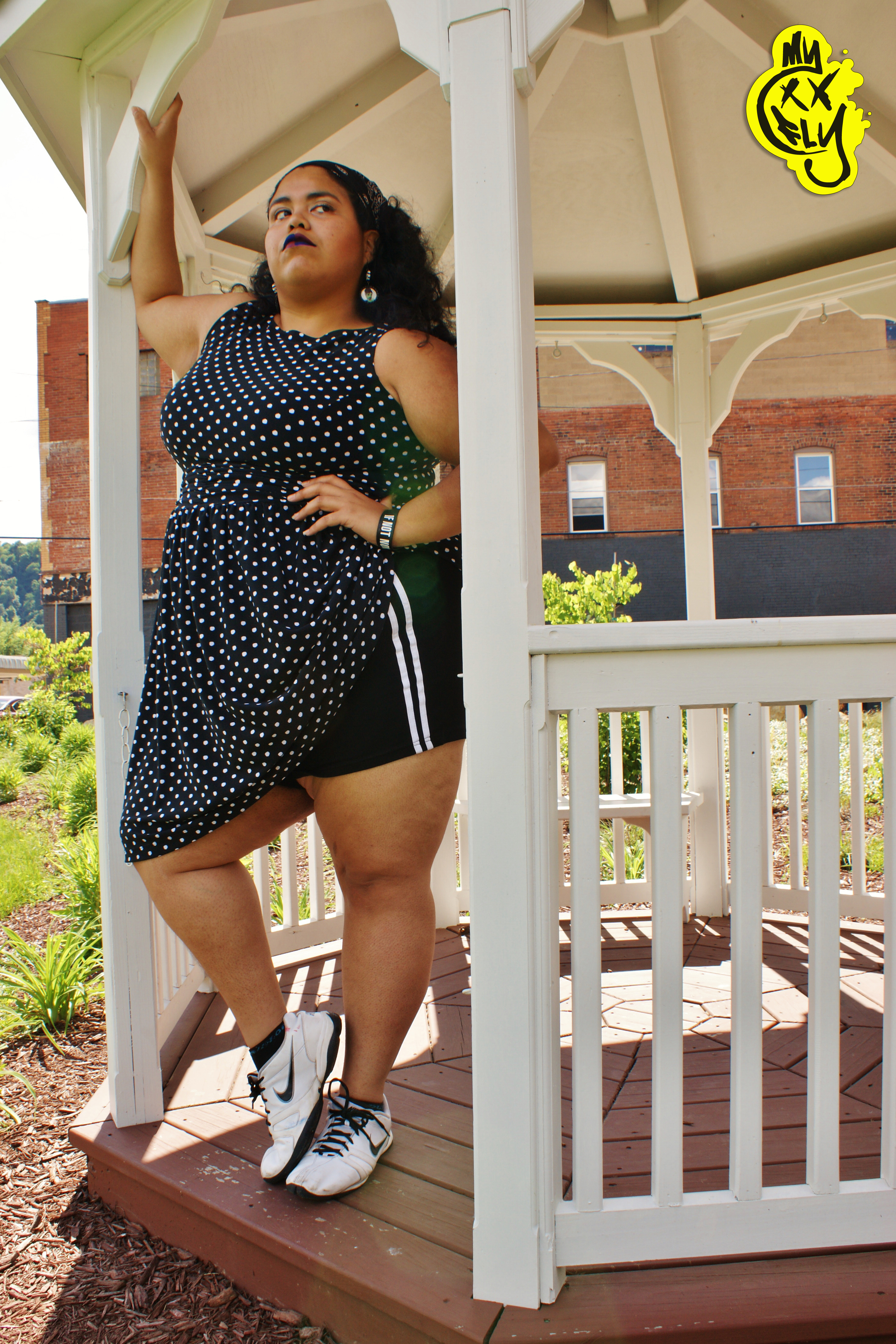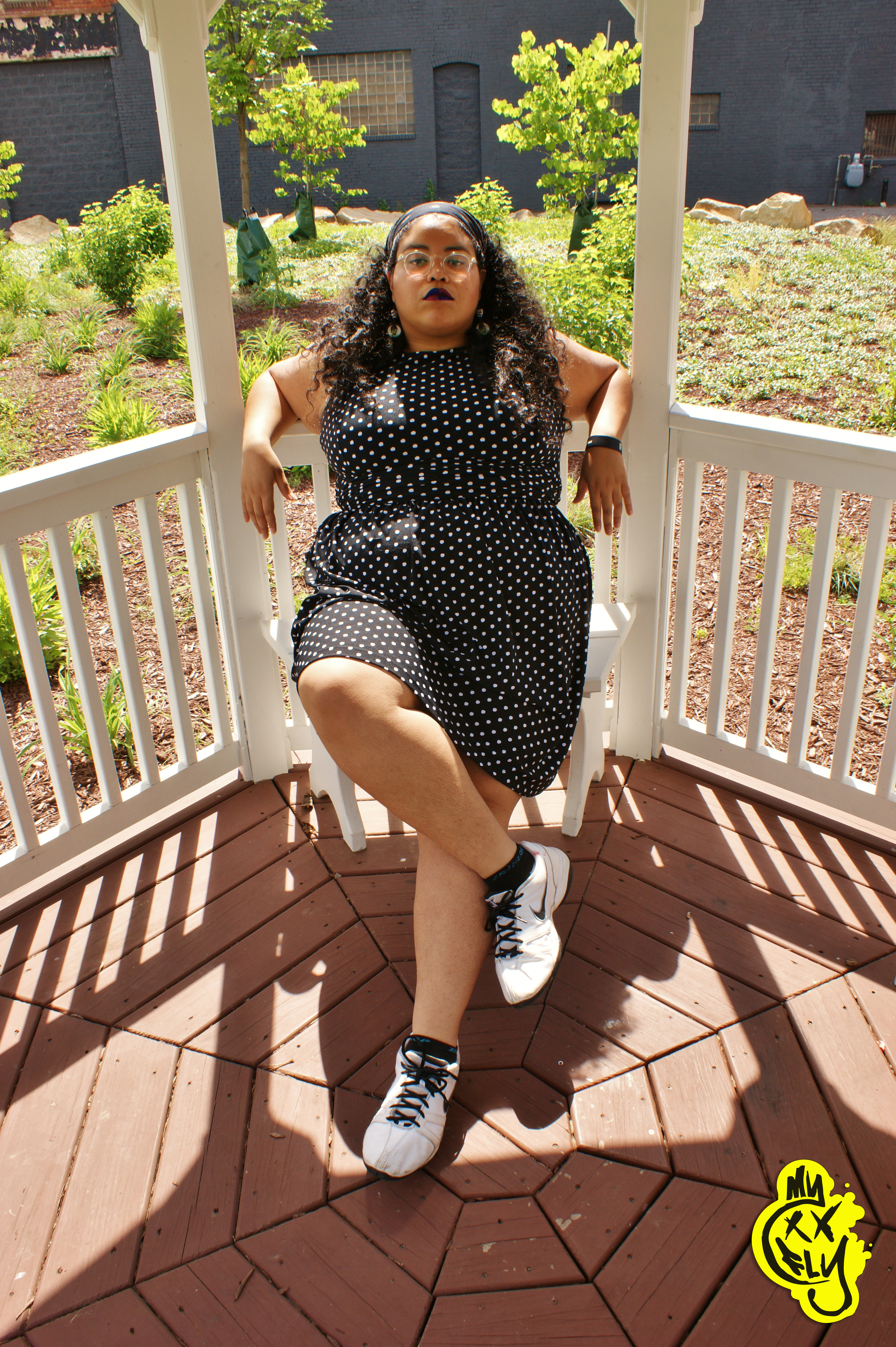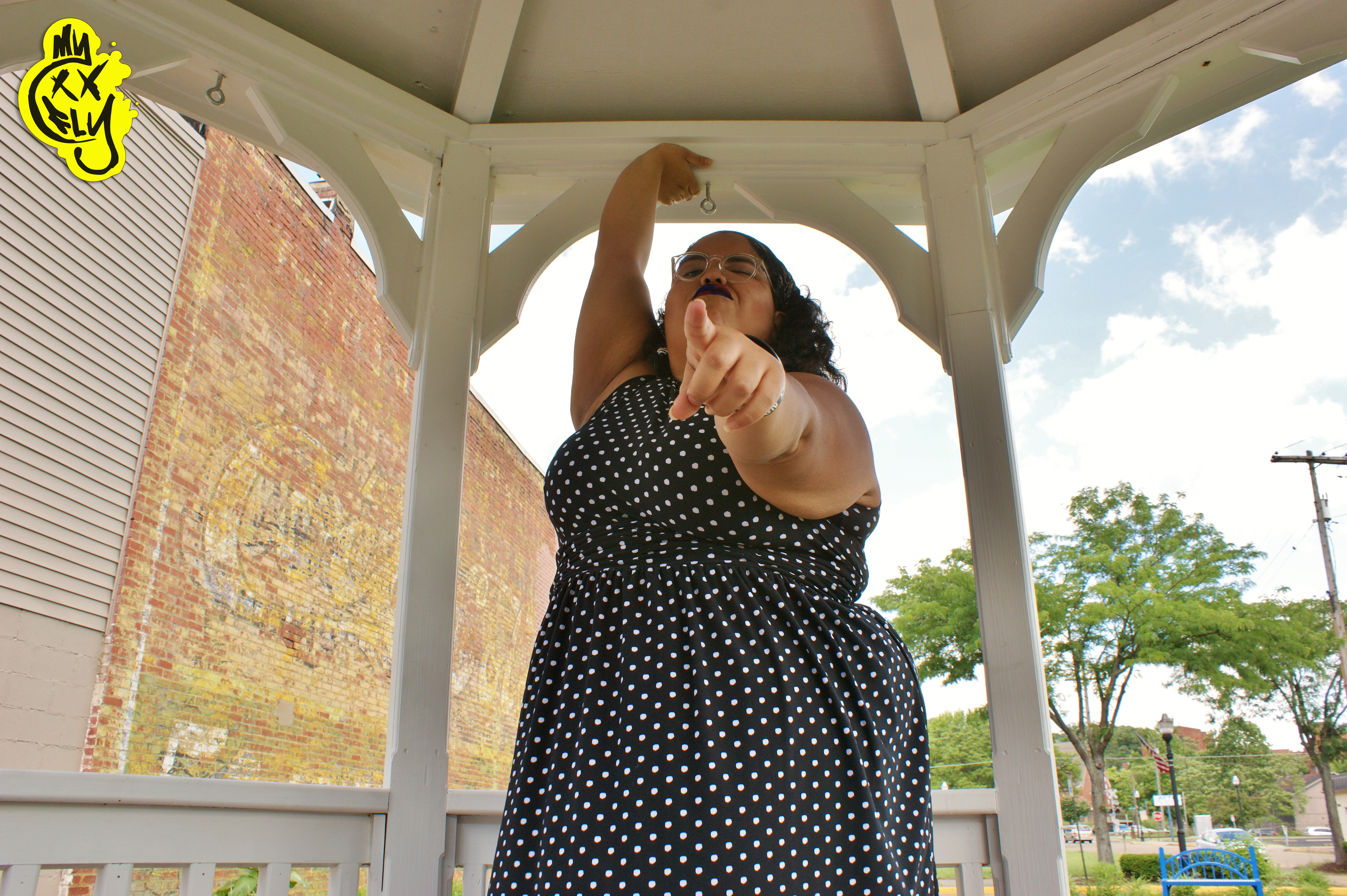Polka dots remind me of my abuela. My entire childhood was punctuated by my abuela’s booming laugh, her skinny legs in short shorts, and her polka dot shirts. They were all crew neck; yellow, pink, red, blue, every color you can imagine, all with evenly spaced neat white polka dots that lay flat against the brown and strawberry freckles of her neck and arms. She’d wear them when we’d lay in bed and reach up toward the ceiling. Like elegant flamenco dancers we’d rotate our hands at the wrists and pretend together. Sometimes she’d add a bright lip and some clip-on earrings to dress up her polka dot shirts. Using a round brush I’d watch her feather her soft hair into a puff and dab powder on her face before heading out the door. Other times, sweat would run down her brow onto her collar when we’d clean together. I’d spray windex on the glass doors and windows and we’d buff them until they were spotless. Cleaning was an excuse to dance and she’d cackle when in the kitchen, her large belly would get wet from where it bumped the wet sink. Her polka dot shirts would sometimes stain with red sauce from the pollo en caldillo she stirred in a huge metal pot. She’d taste test it with a spoon, give me some and ask “que le falta Yesenita?”.
Puntitos blancos me recuerdan a mi abuela. Toda mi infancia estuvo marcada por su gran risa, sus piernas delgadas en pantalones cortos, y sus camisas de puntitos blancos. Todas con cuello redondo y en todos los colores que un puede imaginar; amarillo, rosado, rojo, azul. Los puntitos blancos uniformemente espaciados, un contraste a los lunares cafe y color fresa de su cuello y brazos. Ella usaba estas camisas cuando acostadas las doz, alcanzabamos hacia el techo. Jugabamos de elegantes bailarines de flamenco, girando las manos desde las muñecas. A veces agregaba un color de labio brillante y aretes de clip para vestir sus camisas de puntitos. Usando un cepillo redondo se peinaba y se ponia polvo en la cara antes de salir por la puerta. Otras veces, el sudor le corría por la frente hasta el cuello cuando limpiabamos. Usando una botella de spray, yo cubria las puertas y ventanas con windex y juntas lo secabamos. Limpiando era una excusa para bailar y ella reia en carcajadas cuando en la cocina, su gran barriga rozaba contra el lava manos y se mojaba. A veces sus camisas de puntitos se manchaban con salsa roja del pollo en caldillo que revolvía en un una enorme olla de metal. Ella lo probaba con una cuchara, me daba un poquito y me preguntaba “que le falta Yesenita?”.
Bandanas remind me of my mom. The familiar paisley print stamped over every color of the rainbow, covering her tight coiled fro, wild and unruly beneath them, is home. Bandanas are the perfect accessory for her eclectic ensembles, and hide her white roots in between touch-ups of her black boxed hair color. During the school breaks of my youth, they were also the visual cue that it was time to work. From caring for someone’s newborn baby, or attending to the sick and elderly, to transforming someone’s house after a limpieza. The only constant in a stream of memories, was her kind brown, sun-kissed face, framed by a bandana. I’d watch her delicate princess hands, small-boned and feminine, caress an infant to sleep one minute, and vigorously clean floors the next. The strength in those tiny hands, a well-guarded secret. Bandanas, non-skid sneakers, and leggings that hug her thick legs, strengthened by years of walking to bus-stops or the neighborhood residences where she still earns her coin, are her unofficial uniform. Into the evenings they don’t come off either. Bandanas keep her brow dry as she cooks rice and carne con papas at home, and when I’m lucky enough to be around she’ll ask, “como me quedo Yesenita?”.
Las bandanas me recuerdan a mi mama. El familiar estampado sobre todos los colores del arcoiris, cubriendo su pelo afro, grueso y rizado debajo de ellos, es mi hogar. Las bandanas son el accesorio perfecto para sus trajes eclécticos, y esconden sus raíces blancas entre los retoques de su tinte de caja color negro. Durante las vacaciones escolares de mi juventud, las bandanas eran la señal visual de que era hora de trabajar. Cuidando a bebés recién nacidos, atendiendo a los enfermos y a los ancianos, o transformando una casa con una limpieza, ella lo hacia todo. El único constante en una corriente de recuerdos, es su cara amable, bronceada, enmarcada por sus bandanas. Yo miraba sus delicadas manos de princesa, femeninos de huesos pequeños, acariciando a un bebé hasta que se dormiera un minuto, y limpiando pisos vigorosamente el siguiente. La fuerza en esas pequeñas manos, un secreto bien guardado. Bandanas, tenis deportivos y licras que abrazan sus piernas gruesas, fortalecidas por años de caminar hasta paradas del bús o las residencias del vecindario donde todavía gana su moneda, son su uniforme no oficial. Y en las tardes tampoco se los quita. Bandanas mantienen su frente seca mientras cocina arroz y carne con papas en la casa, y cuando tengo la suerte de estar cerca, me pregunta “como me quedo Yesenita?”.
Completely different yet entirely the same, these two women are my soul. Maria y Auxiliadora, two halves of the same whole. The elders I consult both spiritually and intellectually when I don’t have the answers I seek. My models for womanhood, that gave me the certainty that to be good doesn’t mean we are meek. The matriarchs who taught me divinity in actions instead of thoughts, who don’t need lecture halls to teach valuable lessons, only bandanas and polka dots.
Completamente diferente y a la misma vez igual, estas dos mujeres son mi alma. Maria y Auxiliadora, dos mitades de el mismo todo. Los ancestros que consulto tanto espiritual como intelectualmente cuando no tengo las respuestas. Mis modelos de mujer, que me dieron la certeza de que ser bueno no significa que somos debiles. Las matriarcas que me enseñaron la divinidad en acciones en lugar de pensamientos, que no necesitan aulas inmensas para enseñar lecciones valiosas, solo bandanas y puntitos blancos.
***
The identity, strength, and resilience a child develops in the hands of a loving caregiver is priceless, this is why the U.S. government is inhumanely separating children from their parents at the border. Children are being put in cages, in camps more akin to prisons, due to racism and xenophobia. America has a long history of dehumanizing and separating families of color. Native American children forced into boarding schools to strip them of their cultural heritage, black children born into slavery ripped from the arms of their parents and sold, immigrant children needlessly orphaned by the state. Many of these children were never and will never be reunited with their families. The traumas children and families face when they are forcibly separated is an irreversible wound that persists for generations, it is mass racial violence.
La identidad, fuerza, y espiritu luchador que un niño desarrolla en las manos de una vida familiar amorosa no tiene precio, esta es la razón por la cual el gobierno de EE. UU. está inhumanamente separando a los niños de sus padres en la frontera. Niños están siendo enjaulados, en campamentos parecidos a prisiones, debido al racismo y la xenofobia. Los Estados Unidos tiene una larga historia de deshumanización y practicas de separación de familias de color. Niños nativos americanos obligados a ser internados para robarles su herencia cultural, niños negros nacidos en la esclavitud arrancados de los brazos de sus padres y vendidos, niños inmigrantes huérfanos innecesariamente por el estado. Muchos de estos niños nunca fueron y nunca seran reunidos con sus familias. Los traumas que enfrentan los niños y las familias cuando son separados por fuerza son una herida irreversible que persiste durante generaciones, es una masiva violencia racial.
If you are morally outraged by these practices I urge you to vote in your midterm elections. Click on any of the underlined hyperlinks for more information on where and how to call your senators and representatives. For a list of organizations who are actively fighting for immigrants rights visit stopseparation.org and donate. Until next time, take care of each other, do not sit idly by, and keep your double-x fly.
Si estas prácticas te indignan moralmente, te pido que votes en tus elecciones locales. Haga clic en cualquiera de los hipervínculos subrayados para obtener más información sobre dónde y cómo llamar a tus senadores y representantes. Para obtener una lista de organizaciones que luchan activamente por los derechos de los inmigrantes, visite stopseparation.org y done. Hasta la próxima, no te quedes sentado de brazos cruzados, cuidense unos a otros, y manten tu doble-equis fly.

